Preparing for surgery can be a daunting experience, but having clear pre-operative instructions can alleviate much of that anxiety. Keeping organized and informed about what to expect before your procedure is crucial for a successful outcome. From dietary restrictions to medication guidance, understanding each step can help you feel more in control. So, let's dive into the essential pre-operative instructions you need to ensure a smooth journey towards recovery!
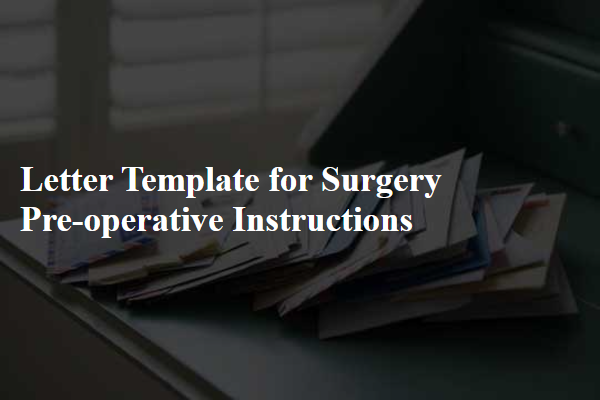
Patient Identification
Patient identification is a critical step in the surgical process, ensuring accurate treatment and care during operations at medical facilities such as hospitals. Each patient should wear a wristband featuring unique identifiers, including full name, date of birth, and medical record number. This information must match the details on the surgical consent form and the patient's medical records. Surgical teams, including surgeons, anesthetists, and nurses, will frequently verify this information at various stages, from pre-operative assessments to the time of surgery in the operating room. This procedure minimizes the risk of errors and ensures that each patient receives the correct surgical intervention, emphasizing patient safety and quality care.
Surgical Procedure Details
Surgical procedures, such as orthopedic surgeries, often require detailed pre-operative instructions to ensure patient safety and optimal outcomes. These instructions typically include vital information about fasting protocols, usually requiring no food or drink for at least eight hours before the procedure. Patients should also note the importance of arranging transportation, as anesthesia can impair motor skills post-surgery. Specific medications may need to be adjusted; for instance, blood thinners like Warfarin may need to be discontinued days in advance to reduce bleeding risks. It is crucial for patients arriving at the surgical facility, like a hospital or outpatient surgery center, to bring identification, insurance details, and a list of current medications. Lastly, patients should prepare for a recovery plan, which may involve scheduled follow-up appointments within one to two weeks post-surgery for suture removal and progress evaluation.
Medical and Medication Guidelines
Pre-operative instructions for surgery emphasize the critical importance of adhering to medical and medication guidelines to ensure patient safety and success. Patients should refrain from eating or drinking for a minimum of eight hours before surgery (NPO status), as dictated by the specific procedure scheduled at local hospitals or surgical centers. Patients must disclose any current medications, including blood thinners like Warfarin or Aspirin, as these can significantly increase bleeding risks during surgery. Furthermore, guidelines recommend discontinuing certain supplements, such as Vitamin E and Fish Oil, at least one week in advance to mitigate complications. It's crucial to notify the surgical team if there have been any recent illnesses or changes in health status, as this may affect anesthesia or post-operative recovery. Comprehensive adherence to these guidelines is essential for achieving optimal surgical outcomes and minimizing potential risks.
Dietary and Fasting Instructions
Pre-operative dietary and fasting instructions are critical for ensuring patient safety and optimal treatment outcomes before surgery. Patients must refrain from solid food intake for at least 8 hours prior to the procedure to minimize the risk of aspiration during anesthesia, which can lead to serious complications. Clear liquids, such as water, black coffee, or apple juice, may be consumed up to 2 hours before the surgery. For patients undergoing elective procedures in hospitals like Mayo Clinic or Cleveland Clinic, adherence to specific guidelines provided by the surgical team is essential. Certain medications may be allowed with a sip of water, depending on the surgeon's recommendations. Additionally, patients should avoid alcohol and smoking for at least 24 hours before surgery to enhance recovery and reduce the risk of complications.
Transportation and Post-Op Care Plan
Surgery requires careful planning for transportation and post-operative care. Patients should arrange for a responsible adult to provide transportation after the procedure, as anesthesia can impair motor skills and judgment. It's essential to avoid driving for at least 24 hours following surgery. Post-operative care includes monitoring vital signs, managing pain with prescribed medications, and observing for any signs of complications such as excessive bleeding or infection at the surgical site. A follow-up appointment should be scheduled within one week post-surgery to assess healing and address any concerns. Preparation of a comfortable recovery space with necessary supplies, like ice packs and loose clothing, can facilitate a smoother recovery period.
Letter Template For Surgery Pre-Operative Instructions Samples
Letter template of pre-op instructions for minimally invasive procedures.
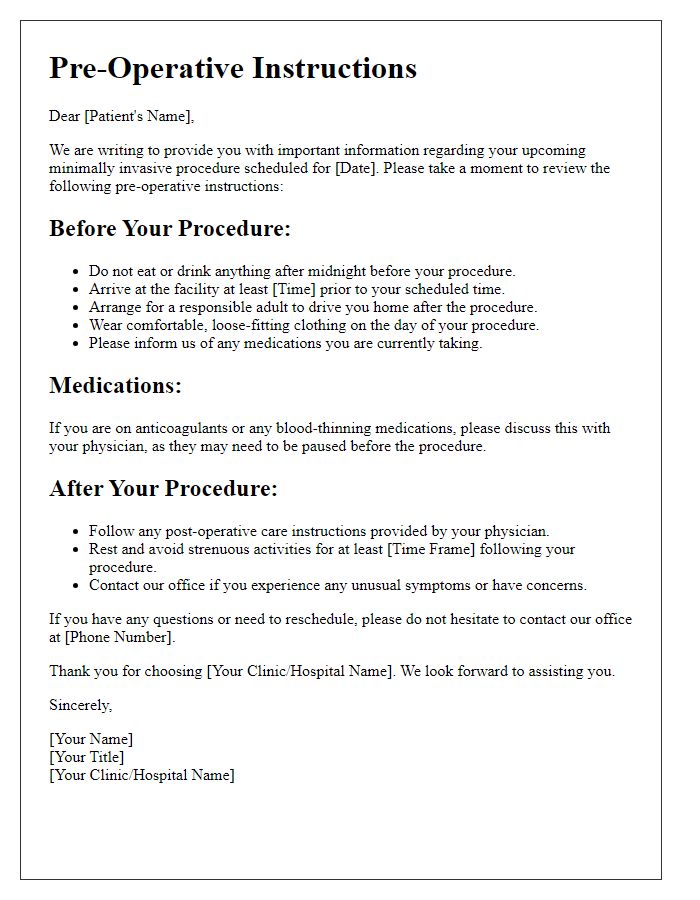
Letter template of instructions for pre-operative testing and evaluation.
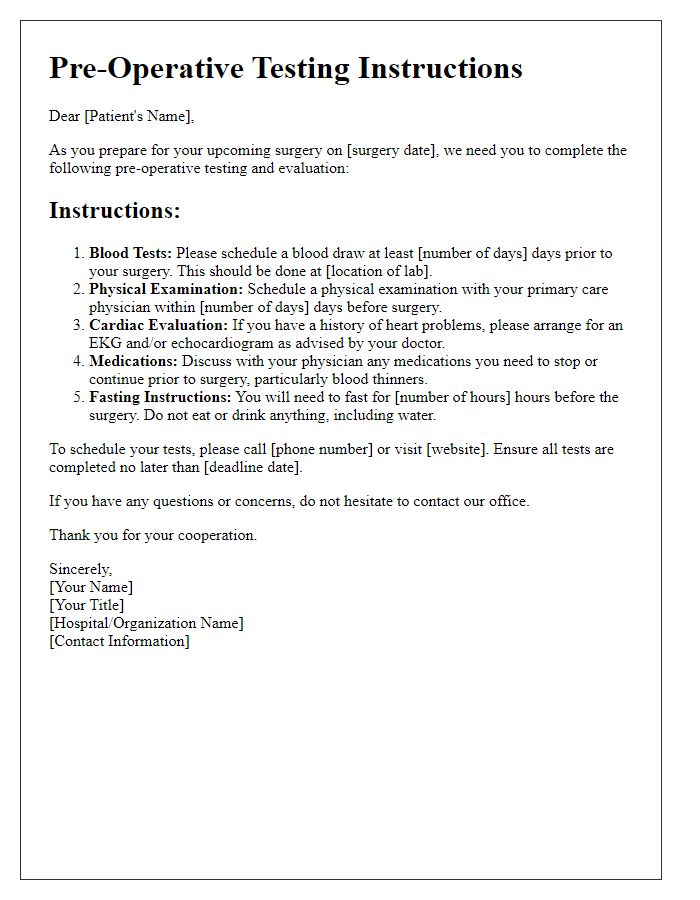

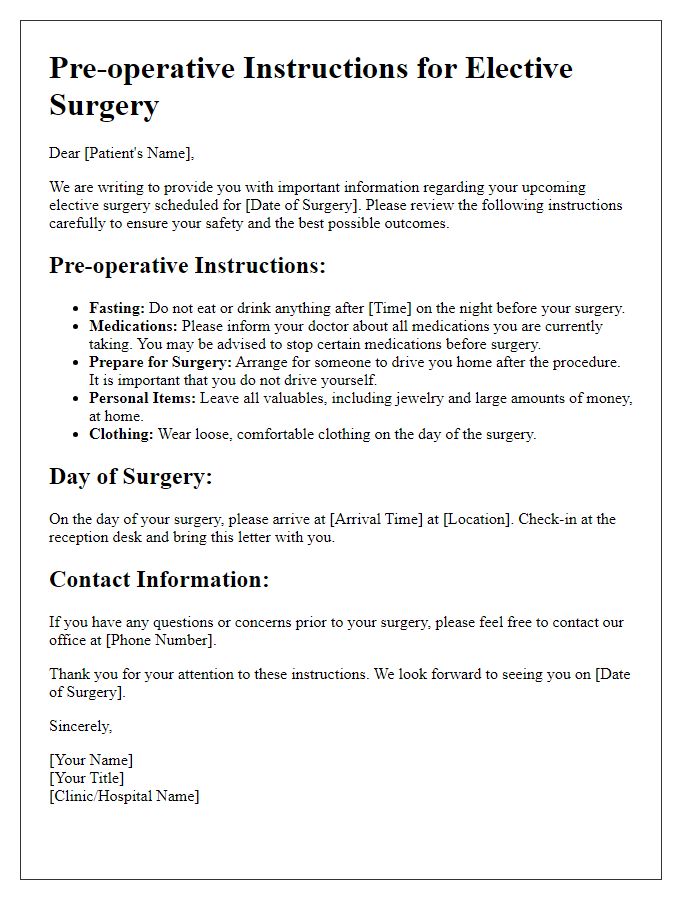
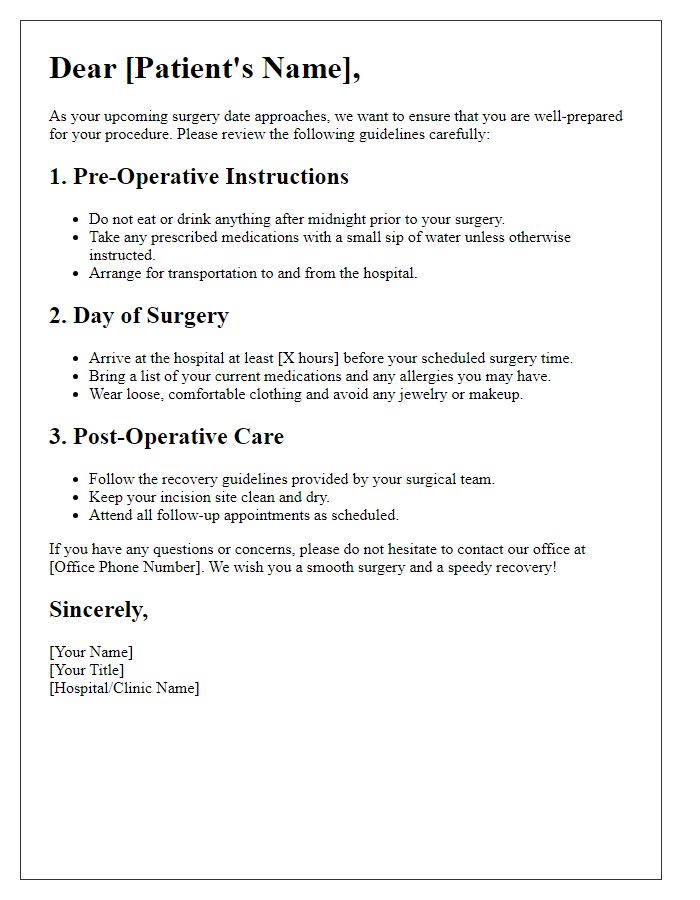
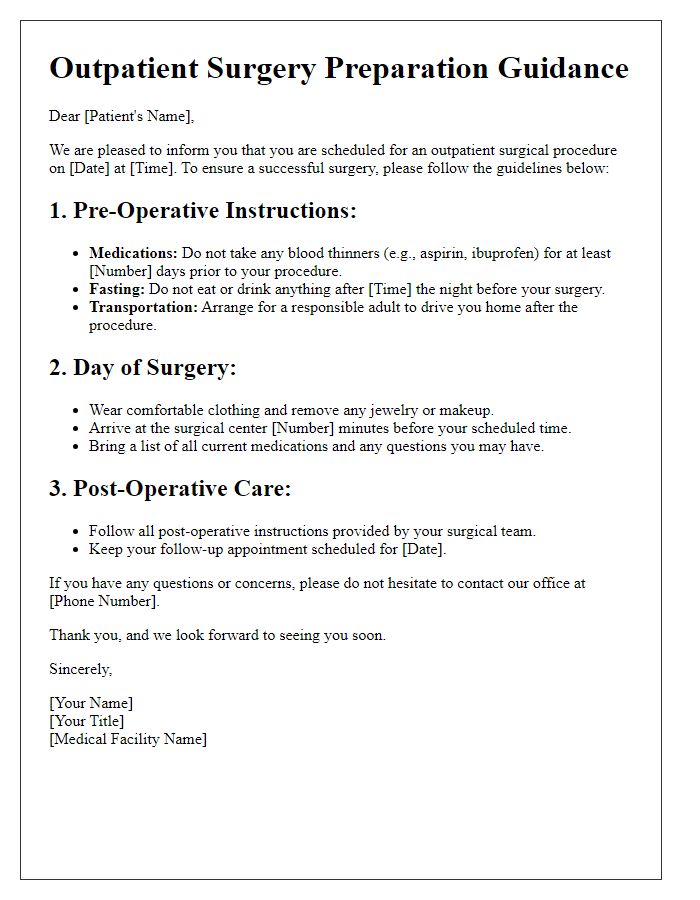
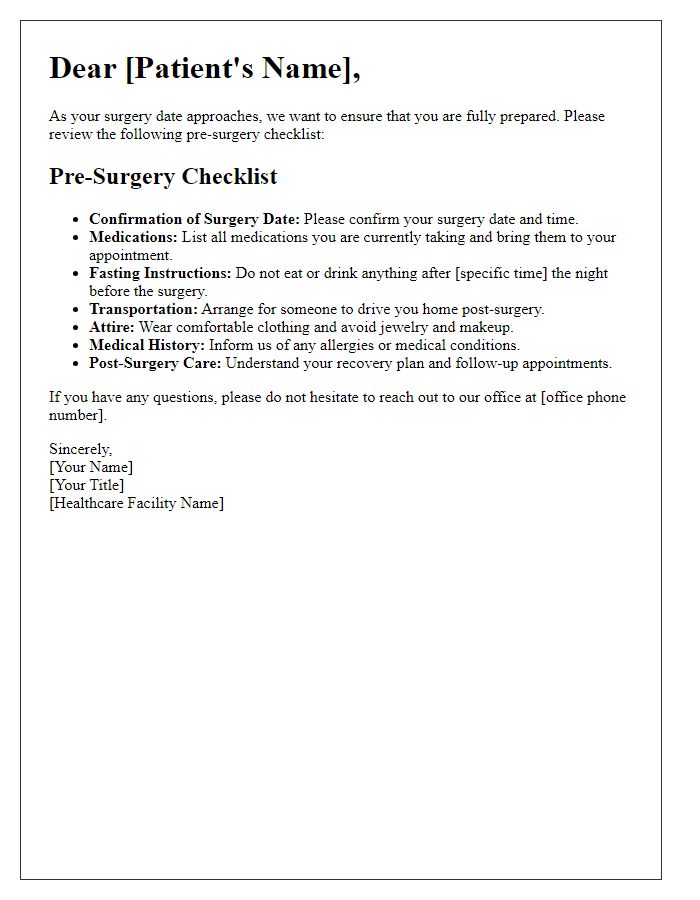
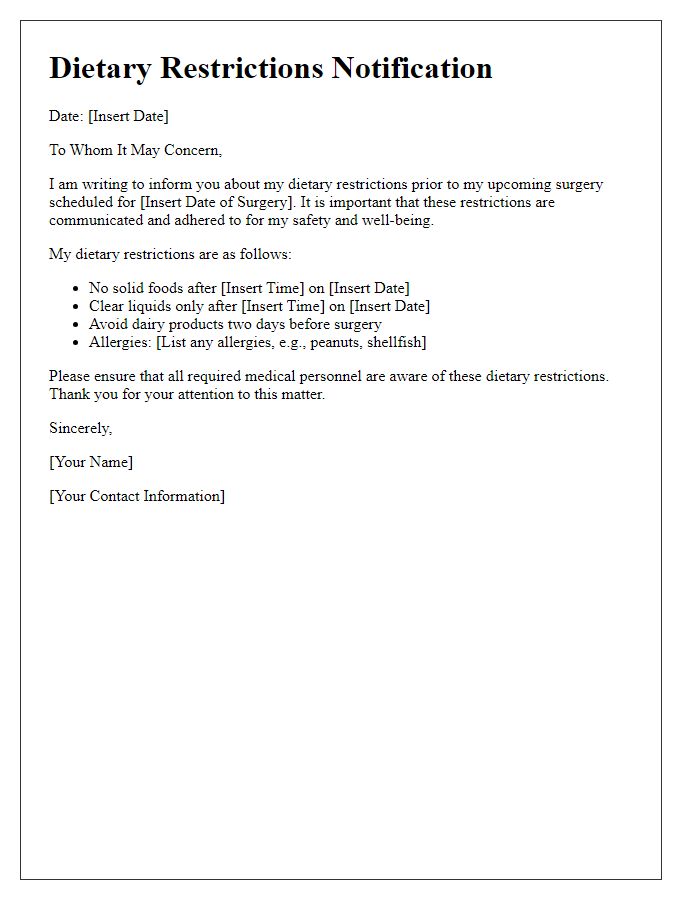
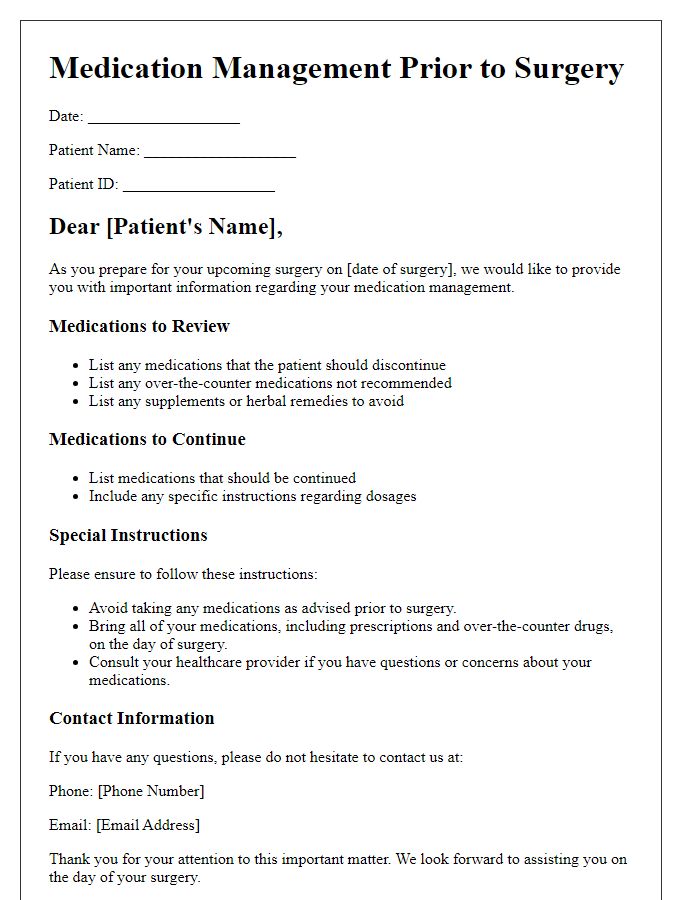
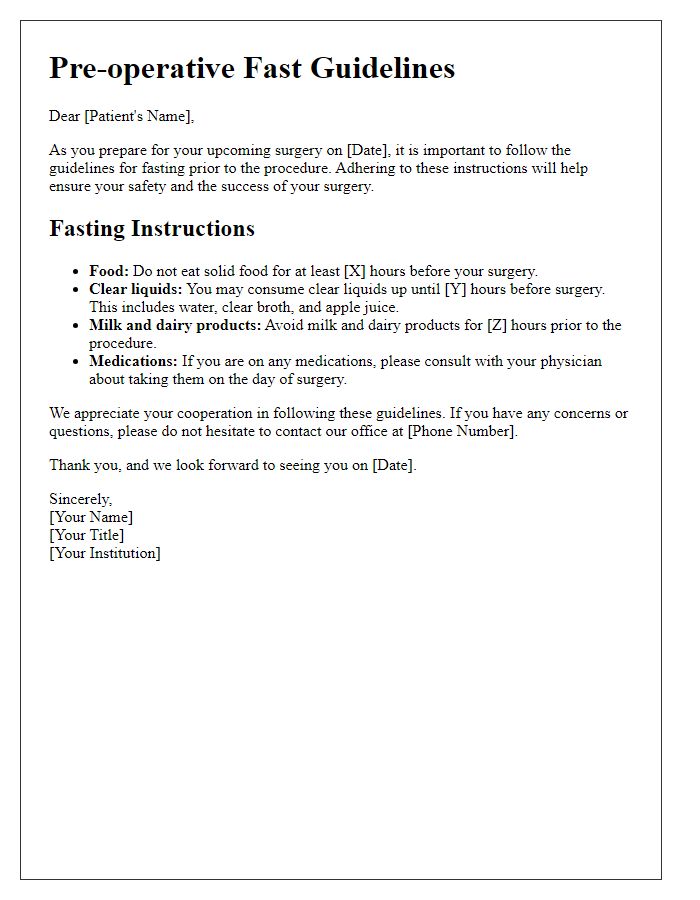
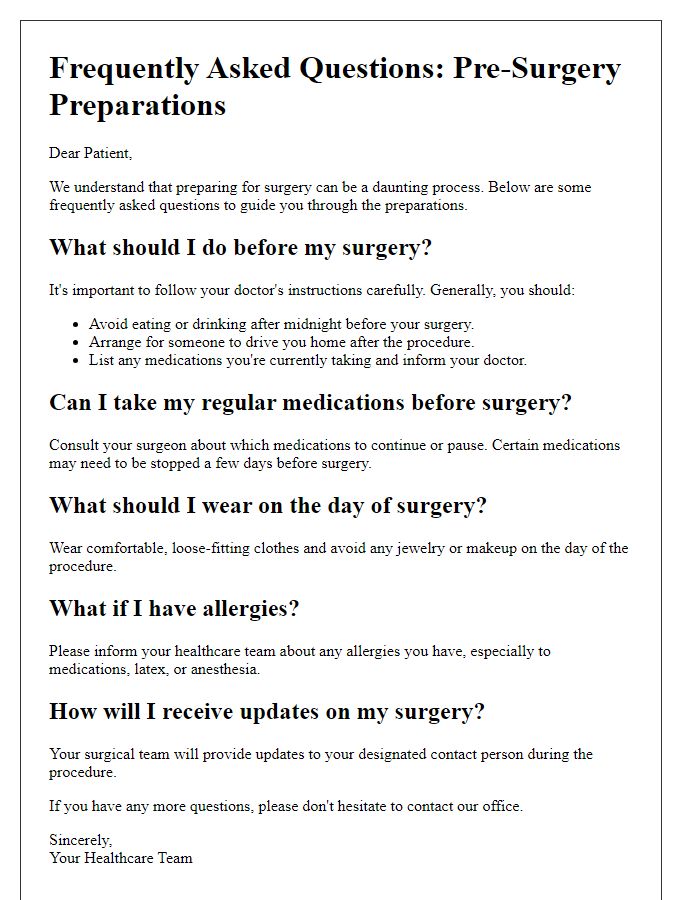


Comments